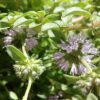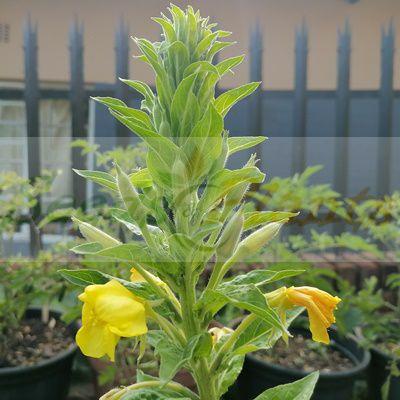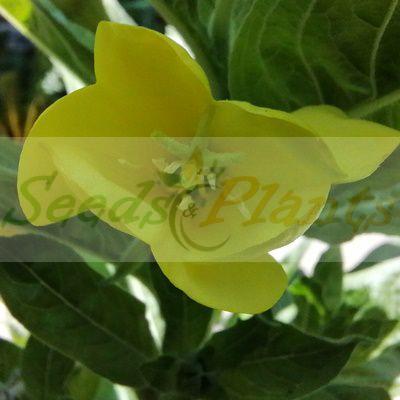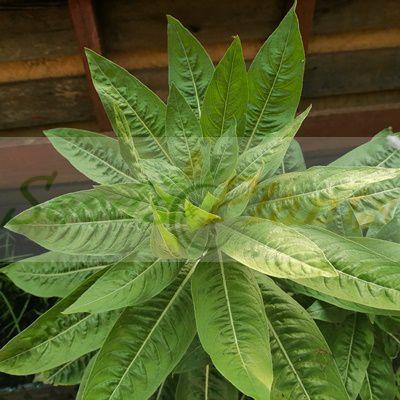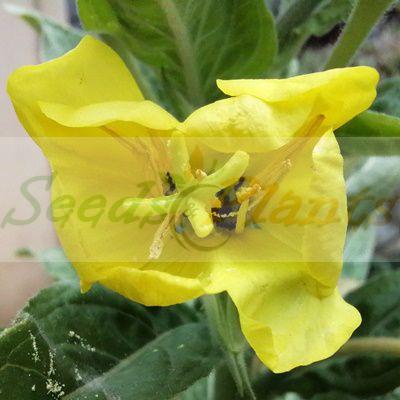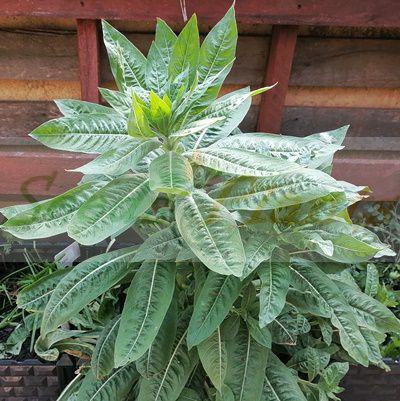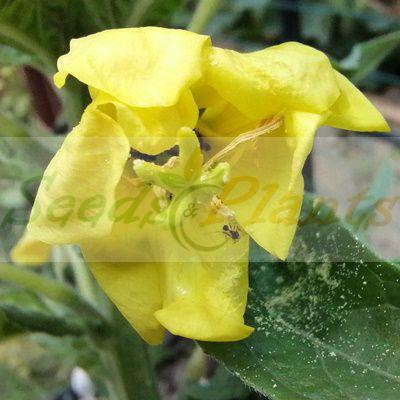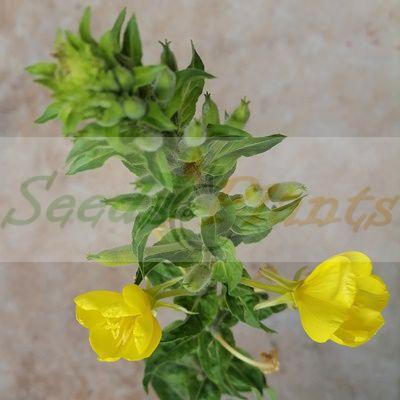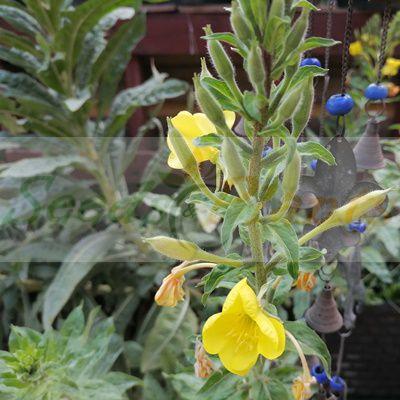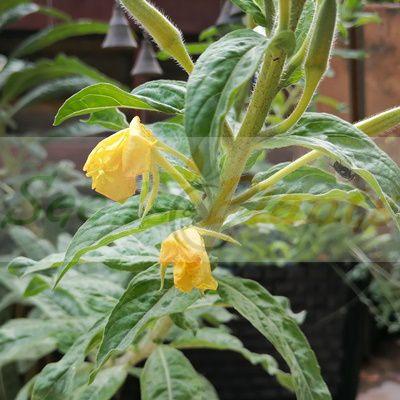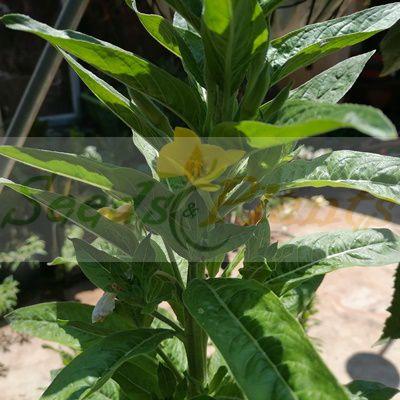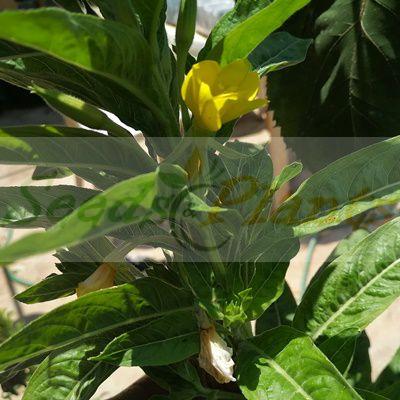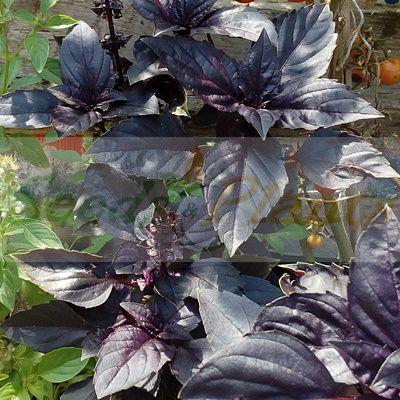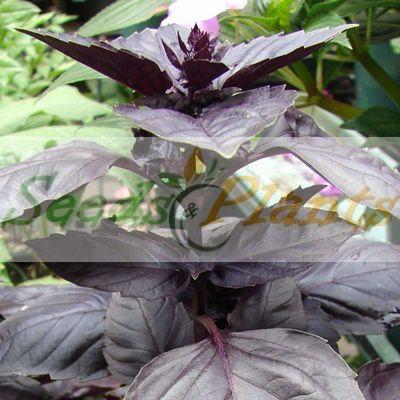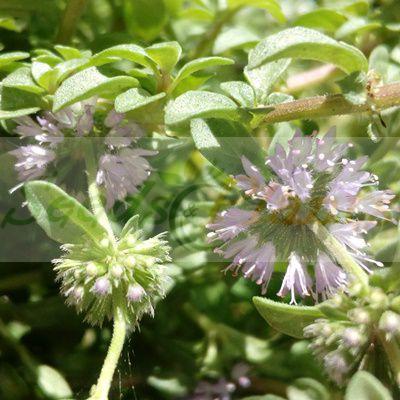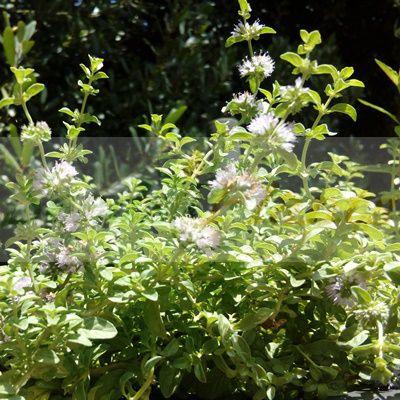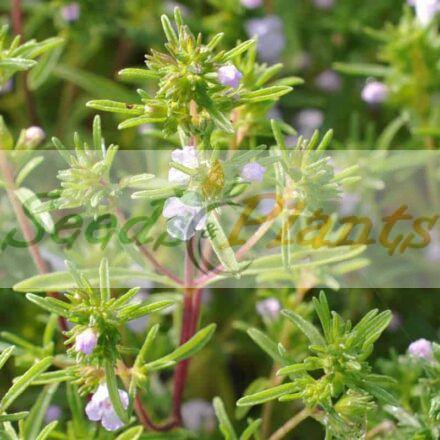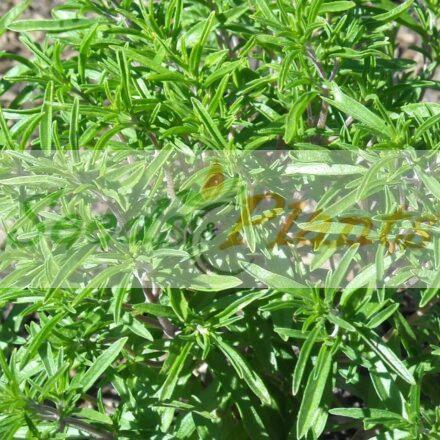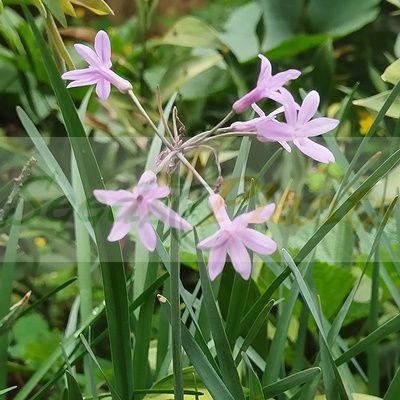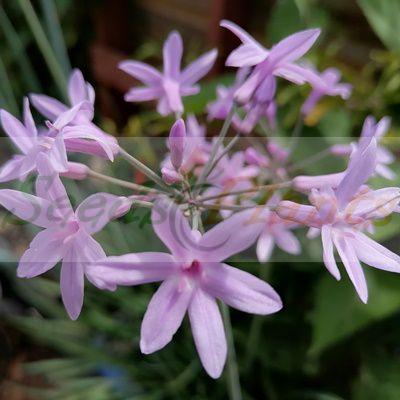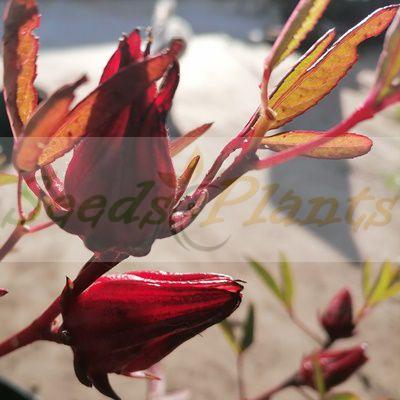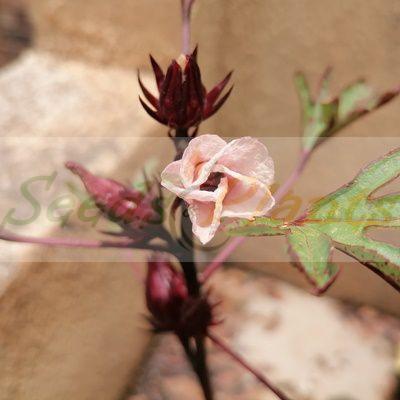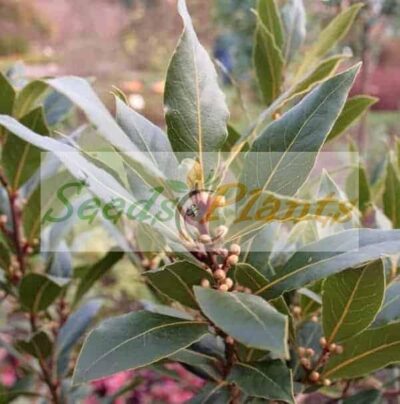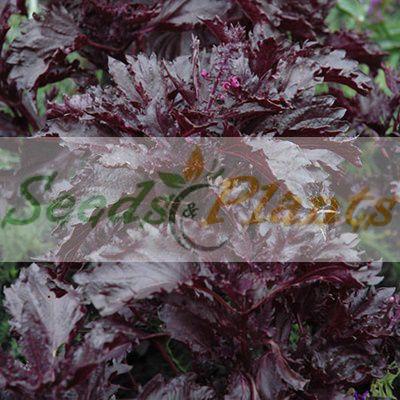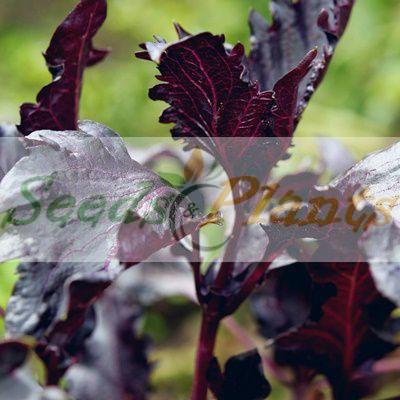🌿 Herbal Quick Facts
Medicinal Info
- 🌍 Origin / Region: North America
- 🌿 Medicinal Part: Flower, Leaf, Root, Seed, Stem
- 🍵 Herbal Preparation: Extract / Tincture, Infusion / Tea, Ointments/Creams, Poultice
- ⚕️ Healing System: American Traditional Medicine, European Traditional Medicine
Culinary Info
- 🍽️ Culinary Use: Baking, Cooking, Garnish, Salads
- 🥗 Edible Part: Flower, Root, Seed, Stem
- 😋 Flavor Profile: Mild Peppery, Sweet
Growth Traits
- 🌱 Life Cycle: Biennial
- 🌾 Plant Type: Herbaceous Biennial
- 🦋 Pollinator Method: Attracts Bees, Attracts Moths
- 🔁 Pollination Needs: Needs Only 1 Plant
- 🪴 Growth Habit: Clumping, Upright
- 🌸 Flower Color: Yellow
Growing Requirements
- 🌞 Sun Exposure: Full Sun, Partial Shade
- 💧 Water Needs: Avoid Overwatering, Regular Water
- ☀️ Growing Conditions: Drought Tolerant, Frost Tolerant, Not Humidity Tolerant
- 🟤 Soil Preference: Loam, Poor Soil Tolerant, Sandy, Well-Drained
Evening Primrose – 100 Seeds
(Oenothera biennis)
R30.00
For many centuries, this plant has been used for culinary purposes and for traditional medicine.
Common Names: Fever plant, great evening-primrose, kings-cure-all, night willow-herb, scabish, scurvish, tee primrose, sun drop and suncups.
Seed Type: Organic – Harvested from our own plants.
Indoor Sowing: Cold Stratification and then transplant in Spring.
Direct Sowing: Early Spring and Late Autumn.
In stock
🌿 Herbal Quick Facts
Medicinal Info
- 🌍 Origin / Region: North America
- 🌿 Medicinal Part: Flower, Leaf, Root, Seed, Stem
- 🍵 Herbal Preparation: Extract / Tincture, Infusion / Tea, Ointments/Creams, Poultice
- ⚕️ Healing System: American Traditional Medicine, European Traditional Medicine
Culinary Info
- 🍽️ Culinary Use: Baking, Cooking, Garnish, Salads
- 🥗 Edible Part: Flower, Root, Seed, Stem
- 😋 Flavor Profile: Mild Peppery, Sweet
Growth Traits
- 🌱 Life Cycle: Biennial
- 🌾 Plant Type: Herbaceous Biennial
- 🦋 Pollinator Method: Attracts Bees, Attracts Moths
- 🔁 Pollination Needs: Needs Only 1 Plant
- 🪴 Growth Habit: Clumping, Upright
- 🌸 Flower Color: Yellow
Growing Requirements
- 🌞 Sun Exposure: Full Sun, Partial Shade
- 💧 Water Needs: Avoid Overwatering, Regular Water
- ☀️ Growing Conditions: Drought Tolerant, Frost Tolerant, Not Humidity Tolerant
- 🟤 Soil Preference: Loam, Poor Soil Tolerant, Sandy, Well-Drained
Evening Primrose Seeds. Evening Primrose (Oenothera biennis) is also known as Fever plant, great evening-primrose, kings-cure-all, night willow-herb, scabish, scurvish, tee primrose, sun drop, suncups. Evening Primrose is a biennial wildflower that blooms at sunset. The flowers will often remain open the next day during cloudy conditions, but fade quickly under bright sunlight.
The plant takes 2 years to complete its life cycle, with basal leaves becoming established the first year, and flowering occurring the second. They prefer growing on shady banks and under hedgerows, doing exceptionally well when planted underneath deciduous trees, where they receive winter sunshine but are sheltered from the heat of summer. These are great plants for the early pollinators and will attract butterflies and moths to the garden.
Evening Primrose Culinary Uses
The entire plant is edible. The early leaves are cooked and eaten as greens, and the roots are said to be sweet, peppery, and delicious when boiled like potatoes. Evening Primrose flowers are a sweet addition to salads or as a garnish. The young seedpods can be served steamed. The seeds can be used as a substitute for poppy seeds on baked goods.
Evening Primrose Traditional Benefits
- The bark and the leaves are astringent and sedative.
- They are of use in the treatment of gastro-intestinal disorders of a functional origin, whooping cough and asthma. A syrup made from the flowers is also an effective treatment for whooping cough.
- Evening primrose oil has become a well-known food supplement since the 1980’s. Research suggests that the oil is potentially very valuable in the treatment of multiple sclerosis, PMS and hyperactivity. It is also taken internally in the treatment of eczema, acne, brittle nails, rheumatoid arthritis and alcohol-related liver damage. Regular consumption of the oil helps to reduce blood cholesterol levels and lower the blood pressure.
- The seed is a good source of gamma-linolenic acid, an unsaturated fatty acid which assists the production of hormone-like substances.
- The poulticed root is applied to piles and bruises. A tea made from the roots is used in the treatment of obesity and bowel pains.
PLEASE NOTE: Evening Primrose is not safe for use by pregnant women and it may also not be safe for people who are prone to seizures and schizophrenia.
How to grow Evening Primrose
Indoor Sowing: Cold Stratification and then transplant seedlings in Spring.
Direct Sowing: Early Spring and Late Autumn.
- When direct sowing, surface sow the seeds. Do not cover with soil, as the seeds need light to germinate.
- For sowing the seeds indoors, first stratify the seeds in the refrigerator for 30 days.
- To stratify, fill a container with moist soil mix and scatter the seeds on top of the soil mix.
- The Evening Primrose Seeds are very tiny and require light to germinate, so do not cover them with soil.
- Cover the container with a lid. Place the container in the the refrigerator for 30 days.
- Afterwards remove the container and put it in a warm place.
- The container must be kept between 18 to 21°C during germination, which takes anything from 1 to 3 weeks.
- During germination maintain moderate moisture levels, never allowing the soil to dry out or to become saturated.
- A sheet of clear plastic or glass placed over the tray will help to retain moisture until the seeds sprout, at which time the cover sheet should be removed.
- Following germination, reduce moisture levels somewhat, allowing the growing medium to dry out slightly before watering, this helps promote rooting.
- Transplant the seedlings into individual pots when they are about 5cm tall, and place in a cool, shady place.
- They will be ready to bloom the following spring.
Can this plant be used for culinary purposes?
Evening Primrose is traditionally used for culinary purposes such as baking and cooking.
Does this plant have medicinal uses?
Traditionally, Evening Primrose has a history of use in various healing systems, including American Traditional Medicine and European Traditional Medicine. Seeds are sold for cultivation purposes only.
Disclaimer
Medicinal Information:
All medicinal information on this website is for educational and informational purposes only and may not be construed as medical advice. The information is not intended to replace medical advice or treatment offered by healthcare professionals.
Seeds, Plants, Plant Cuttings, Geophytes and Dried Herbs:
In some countries and provinces, certain plants are deemed as invasive and are not allowed to be planted at all, whilst some plants are allowed to be grown only in certain areas or provinces. The onus is on you as the buyer to familiarize yourself with the regulations pertaining to your location, before purchasing any of our seeds, plants, plant cuttings, geophytes or dried herbs. We will not be held liable, should you purchase any seeds, plants, plant cuttings, geophytes or dried herbs. from us which are prohibited in your country or province.


